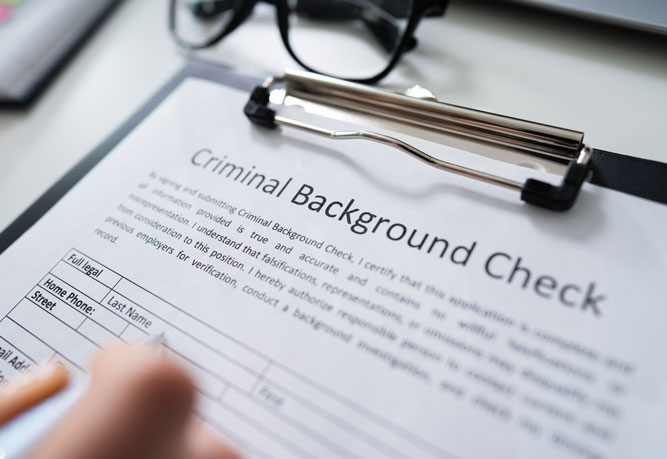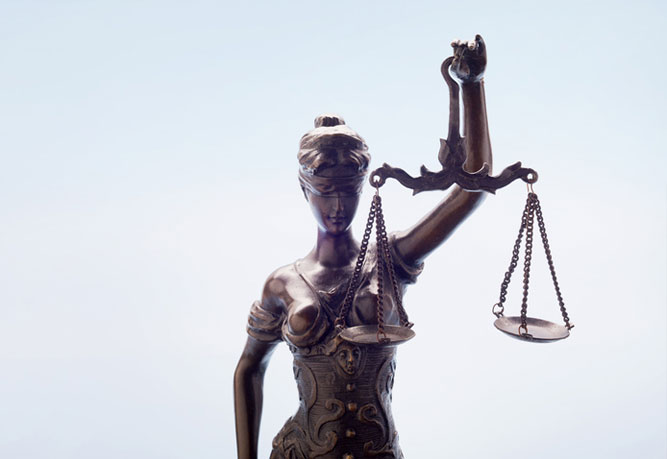Today’s best practices for onboarding and maintaining a safe workplace include establishing a background check process, including criminal record checks and ongoing monitoring. A background check is a screening of an individual’s history intended to provide information to assist in hiring decisions. Background checks vary based on the type of information being searched, but many checks include research about criminal history.
Organizations use criminal records checks to assess whether potential employees are honest or if they might pose any threat to the business or its members. Criminal background screening helps enterprises comply with regulations, protect their assets, mitigate risk, and avoid costly negligent hiring claims. As a result, it’s no surprise that more and more businesses, small and large, use criminal background checks in their routine hiring procedures.
Where do background check companies get their information?
Background check companies collect information related to criminal history from a variety of federal, state, and county sources, including the following:
- District courts
- Sex offender registries
- Interpol public records
- Department of corrections
- State police departments
- State courts
- County courts
- County and state criminal record databases and other repositories
- Prison parole and release files
While much of this information is available online, a significant portion of the research must still be done via person-to-person contact. There is no single repository for a comprehensive criminal record check.
What records are typically included in a criminal background check?
A criminal background report will often include the following, as permitted by law:
- Traffic Offenses: Traffic offenses are generally reported only if they are criminal in nature, such as a misdemeanor or felony.
- Misdemeanors: Misdemeanors are crimes that are less severe than felonies but are generally punishable by fines and/or county jail incarceration.
- Felonies: Felonies are serious offenses that may involve prison time.
Criminal background checks do not typically include the following:
- Non-convictions: While the FCRA (Fair Credit Reporting Act) allows non-convictions to be reported on a background report for 7 years, local laws may prohibit the use and or/disclosure of these records.
- Most reporting agencies will not include arrest-only records or situations where charges were dropped, dismissed, or where the individual was found not guilty.
- Certain cases may be reported, however, if they resulted in a diversion or deferral program (or similar).
- Expunged or sealed records
- Juvenile records: If the crime was committed while the individual was a minor, and if the crime was adjudicated in a juvenile court, it generally will not be included in a criminal history report.
- Civil suits or civil judgments
Should the same criminal record checks be run for all positions?
While it may seem at first glance that running the same criminal background check for every position is the best and fairest policy, a one-size-fits-all screening process is likely not the best option. The most important, most critical, element of any background check is that it be demonstrably relevant to the position at hand.
In fact, the Equal Employment Opportunity Commission (EEOC) mandates that employers consider job and business necessity when selecting background checks.
A fair and effective background check policy often looks something like this:
- Basic check: Hiring for every position includes a basic check that looks at county criminal records and national criminal and sex offender records.
- Position-specific searches: More comprehensive searches can be conducted based on position. For example, motor vehicle records can be reviewed for driving positions, or abuse registries can be searched for positions that work with vulnerable populations. In addition, some industries, like transportation, healthcare, and financial services, have specific legal requirements about what background checks must be run.
When building a background check policy, identifying by position what checks are essential will help your company make the wisest, safest, most compliant hiring decisions.
How long do criminal background screens take?
The average criminal record check takes one to five days to complete, but the time really depends on the type and scope of the check requested. Some basic searches can be completed in hours while more complex searches that rely on 3rd parties, manual searches, or international records can take much longer.
What is ‘ban the box’?
Historically, employers have included a question on standard job applications that asked the applicant to “check the box” if they have ever been convicted of a crime. In many cases, if the box was checked, the applicant never got any further in the application process. “Ban the box” laws regulate when and how employers can ask about an applicant’s criminal history and, in some cases, what actions the employer can take once they become aware of past criminal behavior. In addition, more ban the box laws include specific requirements and/or prohibitions for the employer. For example, California requires an employer to provide the specific reason they are potentially failing someone if it is related to a criminal record.
The purpose of “ban the box” laws is to prevent discrimination. A yes or no answer regarding past criminal convictions is simply not sufficient on its own to determine job suitability in most cases. These laws ensure that all applicants are treated fairly and are given opportunities to work regardless of past choices.
Are criminal record checks legal?
Yes, employers are legally allowed to run criminal background checks on potential hires provided they comply with applicable law. Employers don’t have free rein; there are a number of complex, ever-changing regulations surrounding the collection, use, and disposal of personal information obtained during a background investigation. Compliance with these regulations is critical.
Are you ready to get started?
Accurate Background delivers fast, easy, reliable criminal record background checks. We believe that background checks play a crucial role in safe hiring practices. We are committed to providing the information you need about a candidate’s criminal history to make informed hiring decisions.
Compliance is our specialty. We work carefully with all our clients to design and implement comprehensive screening practices, including criminal background checks, that fit your business needs and are fully compliant with the most current federal, state, and local laws and regulations.
Want to discover how the Accurate team can help your organization? Contact us.



